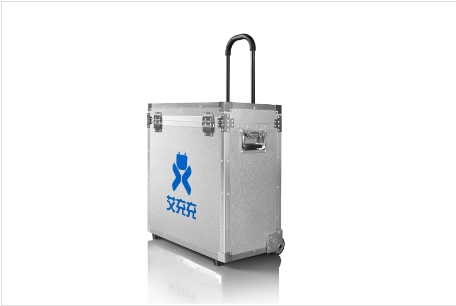
Dez . 25, 2024 03:59 Back to list
distributed energy management system
Distributed Energy Management System Empowering the Future of Energy
As the global energy landscape continues to evolve, the demand for more efficient, reliable, and sustainable energy sources has never been more critical. The rise of renewable energy sources, coupled with increasing energy consumption, has directed attention to innovative solutions for energy management. One such solution is the Distributed Energy Management System (DEMS), a cutting-edge approach that promotes the efficient integration and management of distributed energy resources (DERs).
Understanding Distributed Energy Management Systems
A Distributed Energy Management System is a framework that coordinates and optimizes various distributed energy resources, such as solar panels, wind turbines, energy storage systems, and demand response technologies. Unlike traditional centralized energy systems, which rely on large power plants and a one-way flow of electricity from producers to consumers, DEMS creates a more decentralized and responsive energy network.
By leveraging smart technology, DEMS enables real-time monitoring and control of energy generation, consumption, and storage. This system not only allows for better energy management at the local level but also facilitates the connection of multiple energy sources to the grid, promoting a more resilient and flexible energy infrastructure.
Key Features and Benefits of DEMS
1. Enhanced Reliability By integrating diverse energy resources, DEMS can provide a more stable energy supply. In the event of a power loss in one part of the grid, other distributed sources can compensate for the shortfall, minimizing disruptions.
2. Increased Efficiency Through advanced algorithms and data analytics, DEMS optimizes energy use by matching supply with demand in real time. This ensures that energy is utilized when it is most readily available, reducing wastage and lowering costs for consumers.
distributed energy management system

3. Environmental Sustainability With a strong focus on renewable energy sources, DEMS contributes significantly to reducing greenhouse gas emissions. It promotes the use of clean energy, leading to a smaller carbon footprint and helping communities transition towards a sustainable energy future.
4. Consumer Empowerment One of the key advantages of DEMS is its ability to empower consumers. By providing real-time data about energy usage and pricing, consumers can make informed decisions about their energy consumption. They can also actively participate in demand response programs, earning incentives for reducing their energy use during peak periods.
5. Grid Flexibility As more renewable energy sources are added to the energy mix, the grid's stability becomes increasingly vital. DEMS enhances grid flexibility by allowing for better management of distributed resources, smoothing out the variability associated with renewable generation.
Challenges Ahead
Despite its numerous advantages, the implementation of Distributed Energy Management Systems is not without challenges. Issues such as cybersecurity, grid interoperability, and regulatory framework need to be addressed to ensure the successful deployment of DEMS. Additionally, the initial cost of integrating advanced technologies could be a barrier for widespread adoption, particularly in less economically developed regions.
Conclusion
The Distributed Energy Management System presents a transformative opportunity for how we approach energy production and consumption. It enhances the reliability, efficiency, and sustainability of energy systems while empowering consumers and communities to take control of their energy resources. As technology continues to advance and the global focus on sustainability intensifies, DEMS is poised to play a crucial role in shaping the future of energy.
In conclusion, investing in and promoting the adoption of Distributed Energy Management Systems can lead to a more resilient and sustainable energy future, paving the way for communities to thrive in an increasingly complex energy landscape. The transition towards a decentralized energy framework is not just a technological shift; it is a fundamental rethinking of how we generate, consume, and value energy in a rapidly changing world.
-
High-Efficiency Microinverter Solutions Top Microinverter Suppliers & Exporters
NewsJul.08,2025
-
Top Energy Storage Companies Leading Utility Scale & Long Duration Solutions
NewsJul.08,2025
-
Charge Point Charger - Reliable Charging Solutions for EVs Leading Charge Point Charger Company & Exporters
NewsJul.07,2025
-
Types of Battery Energy Storage Systems - Leading Products & Exporters Company
NewsJul.07,2025
-
AC or DC Power Supply in Home Trusted Google Home Power Supply Voltage Manufacturers
NewsJul.07,2025
-
High-Performance Portable Power Station 220V – Reliable Energy Solutions for Outdoors & Emergencies
NewsJul.06,2025























